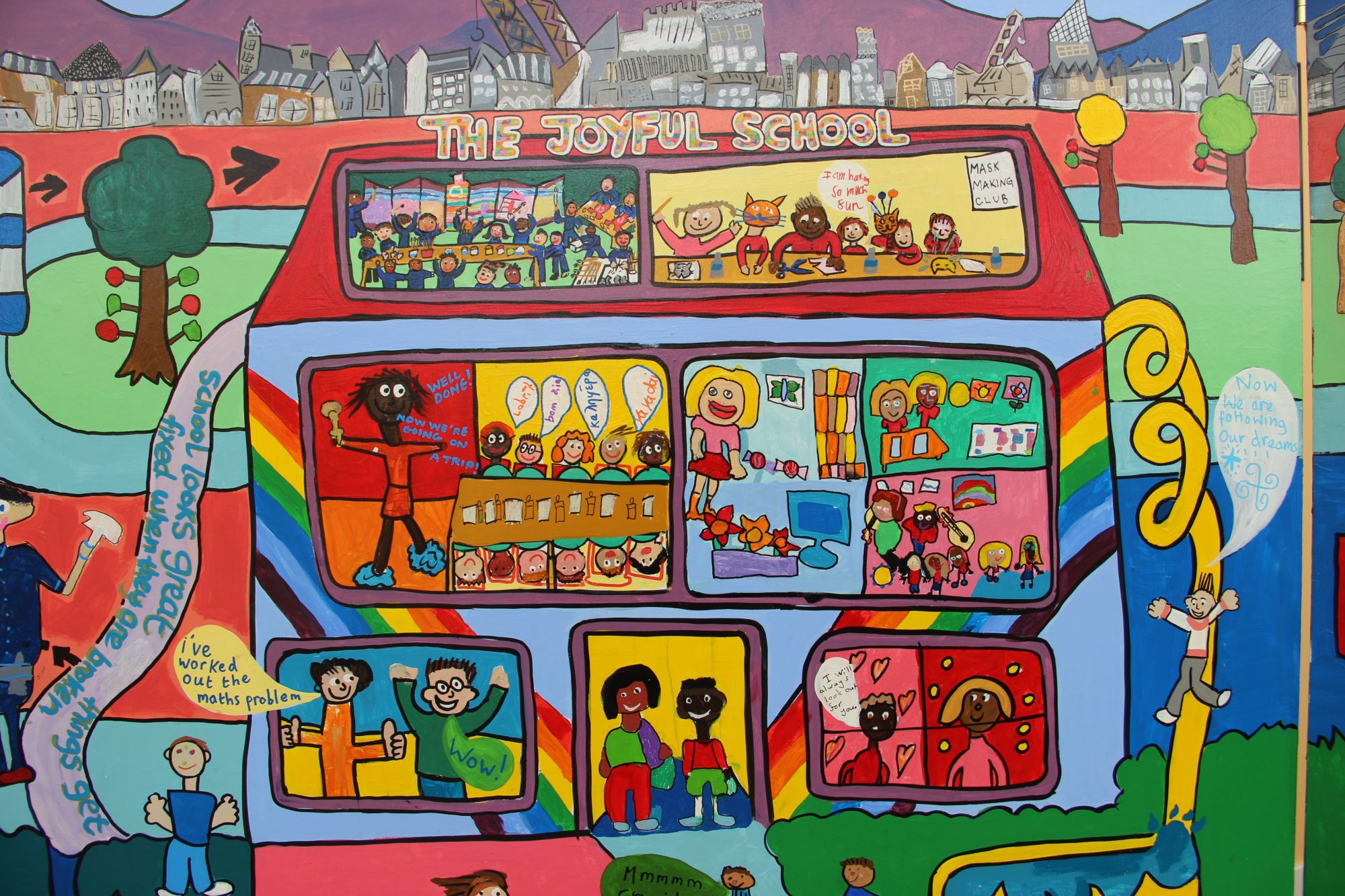What Kind of Scotland? Three blogs (and accompanying publications) about children’s views of life in Scotland.

A few months ago, Children’s Parliament published a review of our work that addressed school and learning – as a title it used what a child had told us: “School should be a joyful place” he said. Education has been a topic for discussion in recent local and impending UK-wide elections. But after we adults have had our say, what then? What might we learn from children that we can use to make a difference?
“School should be a joyful place”
The top line – the big reveal if we need a fanfare – is that for children it’s all about relationships. Surely, it’s a surprise to no-one that learning happens when a child is happy and safe – and so the empathic teacher is the key. A child’s right to an education that is concerned with realising their fullest potential means getting alongside the child, valuing their lived experience, giving them love and care, and using our best professional knowledge and skills to make a positive difference. And yes, we use the love word.
If we are clearly articulating what relationships in school need to be (and can be) like, then we must be honest and talk about what we also see and hear for ourselves and from children – and that is, no matter how many times an international body or visiting delegation tell us how amazing Scottish education is (and it can be), children tell us they still experience key infringements of their right to learn when they are shouted at, embarrassed, ignored, excluded (literally excluded), or denied the support they are entitled to.
In a recent piece of work, children were exploring with us what school is like when it is a place where children are healthy, happy, safe and doing their best. This became a way to talk about rights at school. Then they worked together to identify what can get in the way, essentially what are the barriers to learning, what are the things that are infringing on the lived experience of rights at school. Then we looked at what we might do. For this exercise, the children had to pick 3 main ‘challenges’ and they chose distractions in the classroom, bullying and when you feel sad or down. These already tell us something we adults should be paying attention to, but their responses to all these barriers to participation and engagement at school were very similar with a plea to adults to: check everything is okay; help people, tell them you care; take a deep breath; don’t make people lose Golden Time; never leave people out; help children feel safe; don’t speak badly about people; tell families how to help their children.
In school, adults need to understand their responsibilities and duties (we have already defined these in the Common Core) and live and breathe the humanity children place at the heart of their understanding of what the right to learn should be about. So, when we go to the polls, is there any sense that our schools are a political priority?
Colin Morrison
Co-Director Children’s Parliament
School Should be a Joyful Place
www.childrensparliament.org.uk/wp-content/uploads/School-should-be-a-joyful-place-2016.pdf
Attainment is a human rights issue
www.childrensparliament.org.uk/attainment-human-rights-issue/
Common Core of Skills, Knowledge & Understanding and Values for the “Children’s Workforce” in Scotland
www.gov.scot/Publications/2012/06/5565